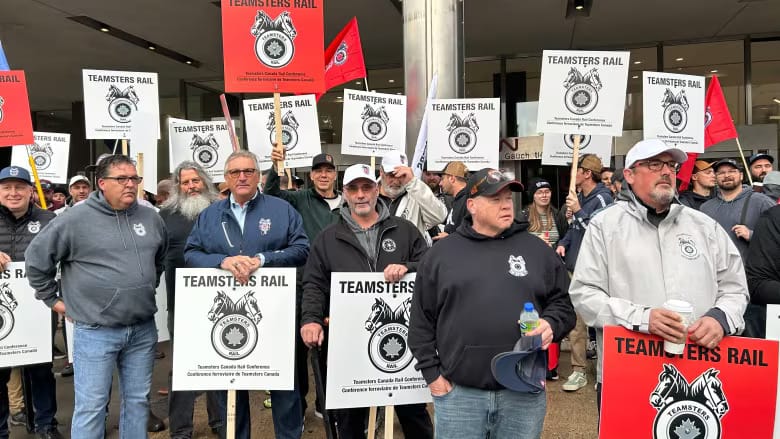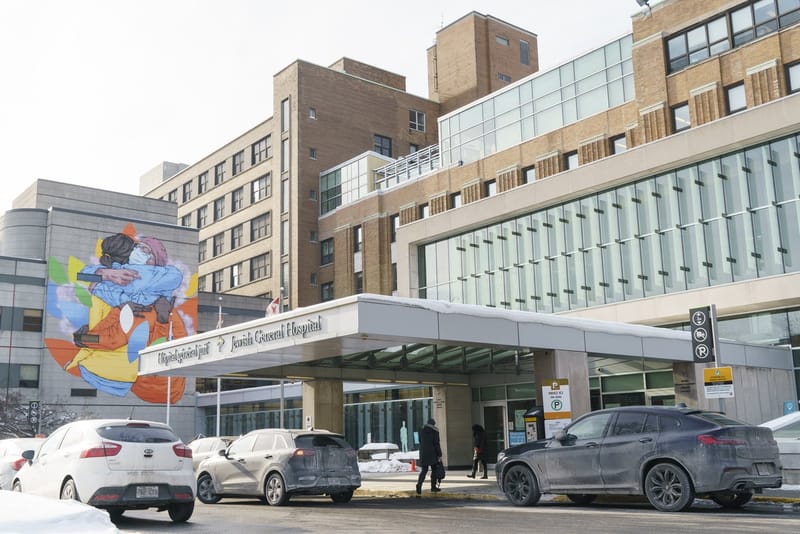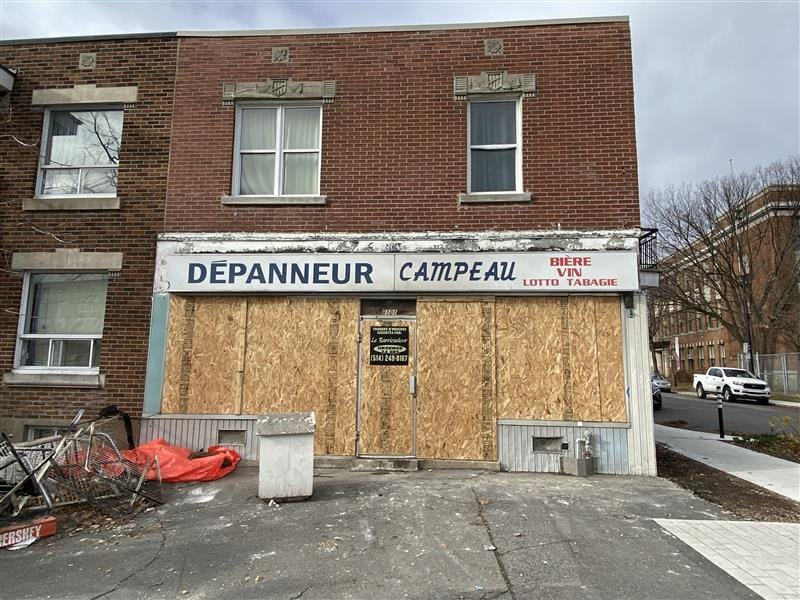Rail workers rally for better working conditions in Montreal as labour dispute halts trains
Negotiations collapsed Wednesday evening after 9 months

Rail workers gathered outside the Canadian National Railway (CN) headquarters in Montreal after negotiations between the Teamsters union and both CN and Canadian Pacific Kansas City (CPKC) broke down.
According to Christopher Monette, public affairs director for Teamsters Canada, workers would have reported to work today if the rail companies had not imposed a lockout on Thursday night. Speaking to Radio-Canada's Tout un Matin, Monette explained that the union had issued a strike notice to CPKC after the company had already sent its lockout notice earlier in August.
Negotiations had been ongoing for nine months, focusing on issues related to wages, benefits, and scheduling.
"You're on call basically 24/7," said Monette. "When you get the call, you have two hours to get to work, and you don't know if you'll be back that same day, the next day, or in two days."
He added that members dedicate over 80 hours a week to their jobs, including time spent waiting and in dormitories.
CN stated that it had presented a final offer before the midnight deadline on Wednesday, but the Teamsters ultimately rejected it. The offer included hourly rates, scheduled shifts, and higher wages.
Teamsters president François Laporte emphasized that the union is ready to return to the negotiating table at any time.
"We don't want to see another Lac-Mégantic accident. We want people who operate the trains—people who are not fatigued," he said. "In Montreal, downtown, for example, and everywhere across the country, you see trains passing by carrying chemical products, energy, oil."

The labor stoppage has already begun to disrupt commuters and is expected to have broader impacts on the distribution of goods. The Railway Association of Canada reports that the rail companies transport a combined $1 billion worth of goods each day.
The Chamber of Commerce of Metropolitan Montreal has called on the federal government to recognize supply chains as an essential service and ensure their continued operation. The group is urging federal Labour Minister Steven MacKinnon to intervene and pass back-to-work legislation.
In an interview with CBC's Power & Politics on Wednesday, MacKinnon said it was the responsibility of both the rail companies and the union to "get a deal."
Canadian ports have raised concerns about potential container backlogs, though Samuel Bouchard Villeneuve, director of public affairs for the Association des détaillants en alimentation du Québec, which represents food retailers, noted that these effects won't be felt by retailers until later.
"Our retailers will be the last to see the effects of the strike," he said.
The work stoppage is also expected to impact the construction industry, according to Karine Casault, communications director with the Association des professionnels de la construction et de l'habitation du Québec. She noted that supply issues had only just begun to improve over the past year following disruptions caused by the pandemic.





